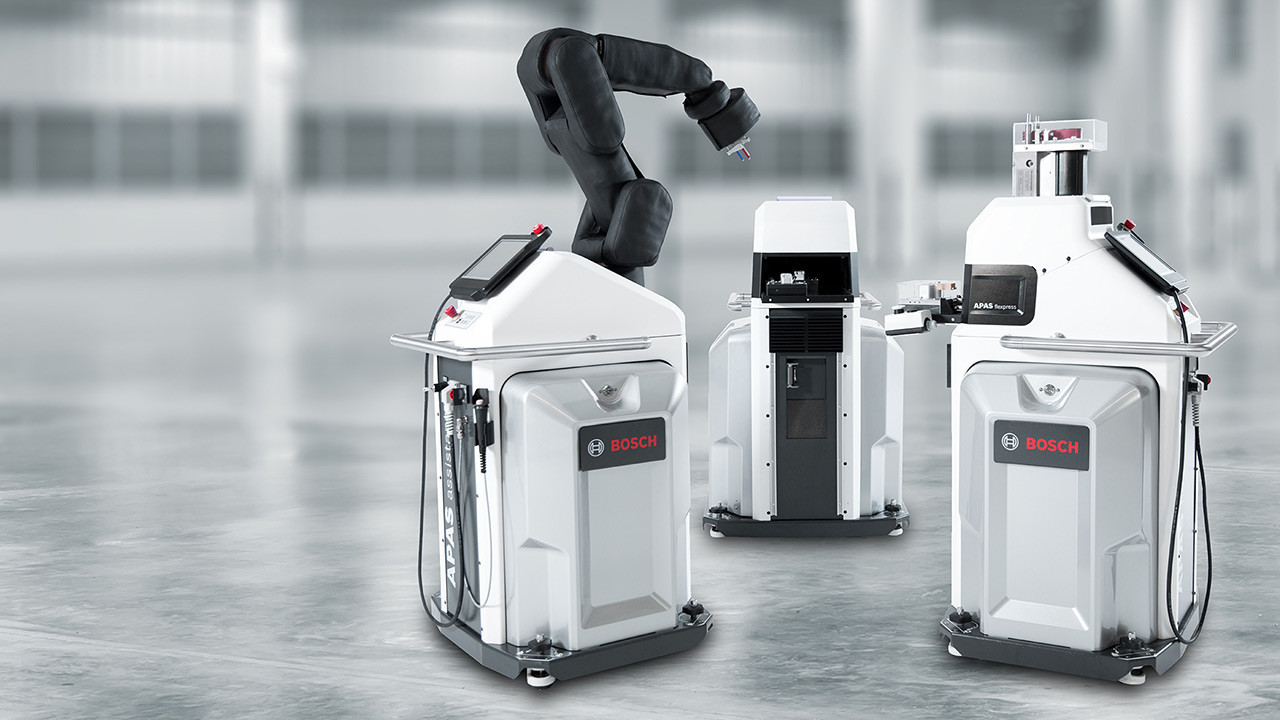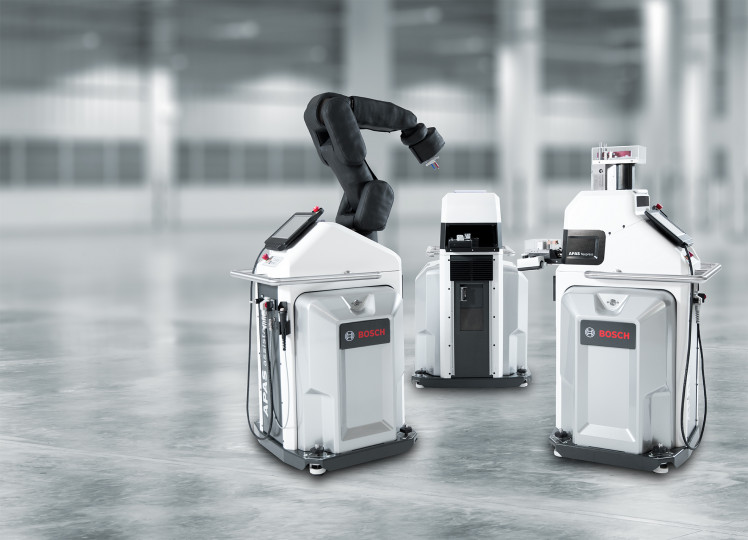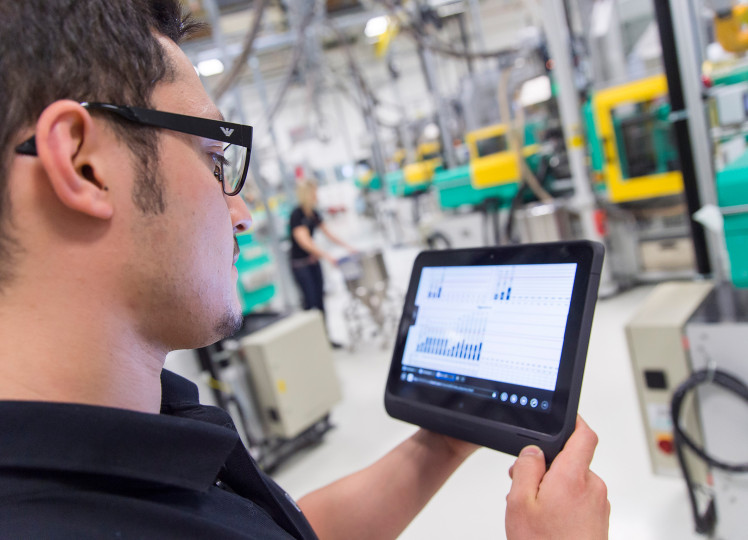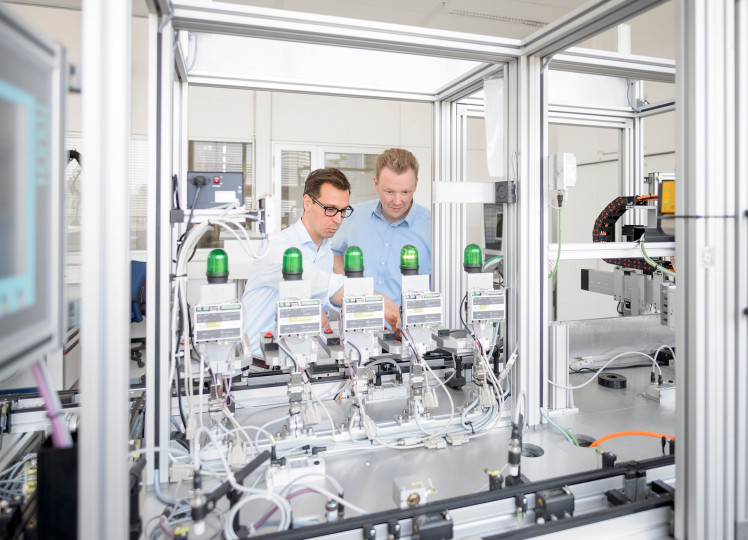Las Vegas – One focus for Bosch at CES 2016 in Las Vegas is on Industry 4.0, also known as connected production, and the company is providing some insights into the manufacturing of the future. “Tomorrow’s production is smart, flexible, and connected. We are both a leading provider and a leading exponent of hardware and software for Industry 4.0,” said Bosch CEO Volkmar Denner, speaking at the company’s press conference at CES 2016 in Las Vegas. More than 100 such projects are currently underway at Bosch’s 250 plants worldwide, including in the U.S, China, India, the Czech Republic, and Germany. Looking at its global manufacturing network, Bosch expects Industry 4.0 to save the company hundreds of millions of euros annually in the years leading up to 2020. Connected, automated manufacturing increases companies’ competitiveness and also allows them to produce very small batches or even individually customized products.
At CES 2016, the supplier of technology and services is showcasing the Bosch APAS family. This includes automated production assistants that make manufacturing flexible and efficient. Designed especially for use in Industry 4.0 applications, they offer powerful support in automated production. The assistants take on strenuous and dangerous tasks but also monotonous ones. For example, they can join workpieces together or unpack crates. This gives the human workforce more time for tasks that add value.
Highest levels of precision and safety: APAS serves coffee
At CES, Bosch is demonstrating just how versatile this production assistant can be. At the Bosch booth at the Sands Expo, the “APAS assistant” is showing off its talent as a barista, serving coffee to visitors who place their order using an app. Each cup is inscribed by the “APAS marker” before being filled with coffee. The focus is on precision and quality: the APAS serves up each cup with millimeter accuracy, as it would a workpiece on a production line. Connectivity with the coffee machine means APAS can announce when a refill of water or coffee is needed. All the APAS robots at the booth can be monitored via a screen, which shows if any problems occur. The APAS assistant is the first industrial robot system to be certified for collaborative operation by the German employers’ liability insurance association. It works hand in hand with people without a safety barrier. Thanks to a patented skin with over 120 sensitive sensors, it stops as soon as a worker gets too close.
APAS family for fast, flexible production
There are additional APAS family members for the world of manufacturing: the “APAS inspector” carries out quality control, checking surfaces using a high-resolution camera and a 3D measuring technique. This enables it to detect hairline cracks in metal components. The “APAS speedswitch” uses a laser scanner to monitor the area around the APAS assistant. If there are no people nearby, it ramps up the speed. This makes it more productive than many other systems, but without compromising human safety. Finally, the “APAS flexpress” precisely assembles component parts or subjects them to further processing, such as pressing, shaping, stamping, or punching. All these production assistants can work as standalones or in combination with one another.
All manufacturing activities on one dashboard
Bosch optimizes processes in its own production by analyzing big data in real time; it also offers the necessary IT manufacturing solutions to its customers. All production and quality data as well as logistics processes can be managed using the company’s IoT shopfloor solutions, which are being showcased at CES. The central control element is a dashboard that displays the data in real time. This allows users to prevent interruptions to the manufacturing process, thereby improving productivity.
Simply.Connected.
Follow the Bosch CES 2016 highlights on Twitter: #BoschCES
Mónika Hack
+36 70 510 5516
The Bosch Group is a leading global supplier of technology and services. It employs roughly 360,000 associates worldwide (as per April 1, 2015). The company generated sales of 49 billion euros in 2014.* Its operations are divided into four business sectors: Mobility Solutions, Industrial Technology, Consumer Goods, and Energy and Building Technology. The Bosch Group comprises Robert Bosch GmbH and its roughly 440 subsidiary and regional companies in some 60 countries. Including its sales and service partners, Bosch is represented in roughly 150 countries. This worldwide development, manufacturing, and sales network is the foundation for further growth. In 2014, Bosch applied for some 4,600 patents worldwide. The Bosch Group’s strategic objective is to create solutions for a connected life. Bosch improves quality of life worldwide with products and services that are innovative and spark enthusiasm. In short, Bosch creates technology that is “Invented for life.”
The company was set up in Stuttgart in 1886 by Robert Bosch (1861-1942) as “Workshop for Precision Mechanics and Electrical Engineering.” The special ownership structure of Robert Bosch GmbH guarantees the entrepreneurial freedom of the Bosch Group, making it possible for the company to plan over the long term and to undertake significant up-front investments in the safeguarding of its future. Ninety-two percent of the share capital of Robert Bosch GmbH is held by Robert Bosch Stiftung GmbH, a charitable foundation. The majority of voting rights are held by Robert Bosch Industrietreuhand KG, an industrial trust. The entrepreneurial ownership functions are carried out by the trust. The remaining shares are held by the Bosch family and by Robert Bosch GmbH.
Additional information is available online at www.bosch.hu
*The sales figure disclosed for 2014 does not include the former joint ventures BSH Bosch und Siemens Hausgeräte GmbH (now BSH Hausgeräte GmbH) and ZF Lenksysteme GmbH (now Robert Bosch Automotive Steering GmbH), which have since been taken over completely.







